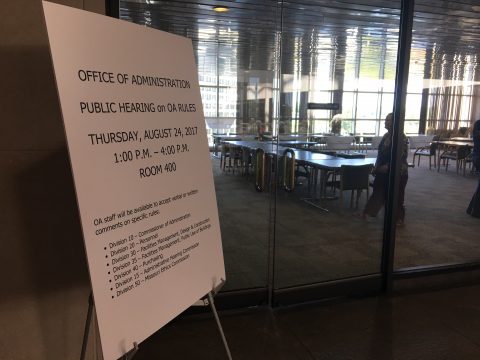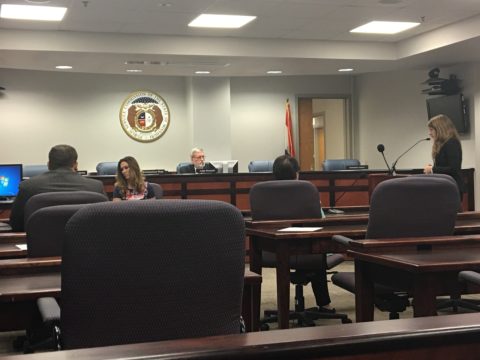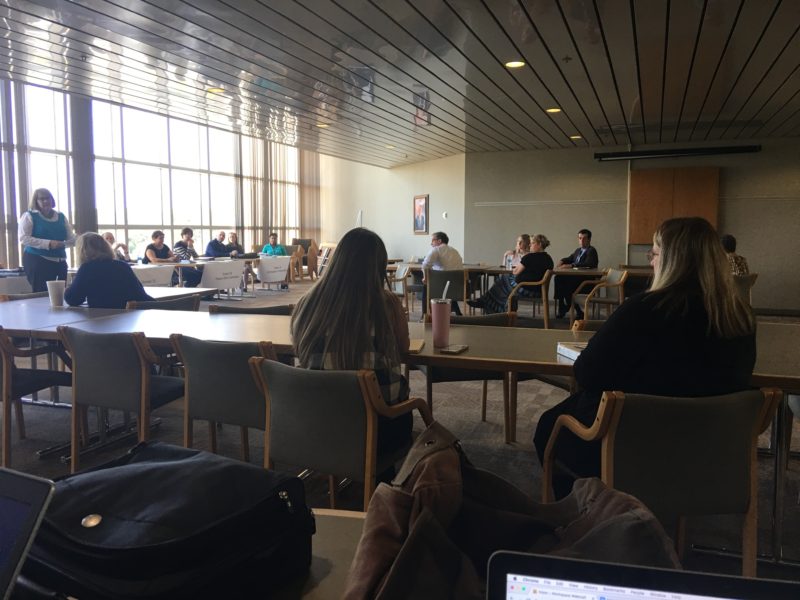JEFFERSON CITY, Mo. – Shortly after taking office, Governor Eric Greitens made it a priority for each state department to review their rules and regulations in order to locate burdensome or outdated practices in order to make the business environment more attractive and encourage job growth.
Greitens announced this move with Executive Order 17-03, which suspended all rulemaking until the end of February and required each agency to review their rules and repeal any regulations that do not meet the necessary criteria, which is as follows:
- The regulation is essential to the health, safety, or welfare of Missouri residents;
- The costs of the regulation do not outweigh their benefits, based on a cost benefit analysis;
- A process and schedule exist to measure the effectiveness of the regulation;
- Less restrictive alternatives have been considered and found less desirable than the regulation;
- The regulation is based on sound, reasonably available scientific, technical, economic, and other relevant information; and
- The regulation does not unduly and adversely affect Missouri citizens or customers of the State or the competitive environment in Missouri.
The initial deadline to complete these rule reviews had been set for May 31, 2017, but it was delayed. Now, the state agencies are in the process of conducting the regulation reviews and holding the required public hearings; some are even wrapping up and sending their results to the Governor’s Office already.
The results, to say the least, have been somewhat mixed, with some departments receiving a few dozen responses from Missourians, while other have recorded hundreds, or in one case, thousands. Currently, the Governor’s “No MO Red Tape” website shows 478 comments have been received. In those comments, the website says 16 departments have been mentioned specifically, with 157 specific requirements identified. According to the website, the departments receiving the most comments are the Dept. of Health and Senior Services, Revenue, Social Services, and Natural Resources.

We reached out to each agency and have been compiling the responses from each department in regard to how many comments they have received and just how effective the public hearings have been. Here are the numbers the Missouri Times has been given from the following departments over the course of the last week:
- Department of Agriculture – 1,968 comments
- MoDOT – 71 comments
- Department of Mental Health – 14 comments
- Department of Health and Senior Services – 45 comments
- Department of Revenue – 69 comments
- Department of Conservation – 646 comments
- Department of Higher Education – 12 comments
- Department of Natural Resources – 74 comments
- Department of Public Safety – 235 comments
- Department of Social Services – 112 comments
- Missouri Public Service Commission – 36 comments
- Office of Administration – 60+ comments
- Department of Insurance, Financial Institutions & Professional Registration – 90+ comments
Interesting to notice is the wide degree of comments given to each department, with the Dept. of Agriculture leading the way with roughly 2,000 comments, compared to the 14 comments received by the Dept. of Mental Health, who also said that they request comments from its consumer and provider networks prior to filing new rules or rule amendments.
“As a result, the number of comments we receive through this open public comment period does not reflect all of the input we receive on our rules,” a statement from the department read.
The Department of Natural Resources also says that one of the best avenues for them has been stakeholder meetings.
It’s also worth noting that, while the Dept. of Higher Education only shows 12 comments, their hearings are still scheduled to take place on Sept. 13 and 14.
In truth, it seems that the more effective means of gathering public comment has been to open up an online way for Missouri citizens to send their ideas or complaints, rather than hosting public hearings. At some hearings, less than a dozen people could be seen in attendance; more than one agency’s hearing even had no attendees. In fact, the two public hearings for the Public Service Commission lasted barely five minutes apiece.

But what works for one may not work for the others, as the Dept. of Conservation saw success with their first three public hearings in Jefferson City, Kirksville, and Cape Girardeau, with roughly 350 people in attendance. That department has hosted their public forums as part of their 80th Anniversary Open House Celebrations. One measured success in the public hearings was the idea to host an open house at the Missouri State Fair, with multiple departments represented at the event.
One common thread between each department seems to be that the public comments are generally positive in nature, and spokespeople from the agencies indicate the conversations have been helpful in highlighting ways they can improve.
“During our public hearings, we received feedback from state employees, citizens, and several entities that have a close working relationship with the state. Overall, our staff has enjoyed the process – it is always positive when we can engage with the public and our fellow employees,” Ryan Burns from the Office of Administration said.
“The public interest in our regulatory review has exceeded our expectations, and we encourage the public to continue to engage with us on our rules and provide additional feedback,” Grady Martin, the Director of Administration and Technology for the Missouri Department of Insurance, Financial Institutions & Professional Registration said.
“In general, they have been constructive, respectful and have expressed appreciation for the process,” Mike O’Connell, the Communications Director for the Missouri Department of Public Safety, said.
But the Governor’s No MO Red Tape website seems to have become more than just a place to vent about current regulations. It’s also become a submission site for complaints about laws signed by Greitens this year, and three items seem to be mentioned the most: right-to-work, minimum wage, and SB 43.
“The governor signed into law regulations that allow companies to discriminate against employees, wage-killing “Right to Work,” and lowered the minimum wage in the biggest economic engine of the state. Jobs are getting worse, not better under this administration,” one submission reads.
“The Governor is making it easier for my employer to discriminate against me by signing SB 43,” another stated.
“Uncultured and uneducated yahoos that think St. Louis is too stupid to regulate itself. You’ve literally made us all poorer by overriding our minimum wage law,” another commented.
“We here in the city of St. Louis believe that a higher minimum wage has positive impacts on so many levels. Thanks to you, those positives are now gone. Shame on you for acting purely to bolster your base and not in the good of the people,” another said.
But other complaints highlighted several topics that Missourians seem to agree as needing to be addressed: namely, the personal property tax and vehicle registration. In general terms, it seems that the Show-Me State citizens have a request: Show me fewer taxes.
“Vehicle licensing is a way too cumbersome. Get rid of personal property taxes and increase another tax to make up the difference,” one commenter wrote.
“I do not believe I should have to pay a tax every year on a car or other vehicle that I own. I paid a sales tax on the car when I purchased it, I should not have to pay a “personal property” tax every year after. I believe this should be abolished and perhaps IF needed should come from property taxes or a small adjustment in another tax. This is a deterrent for people who want to buy a new car. States are getting rid of this type of tax because it forces people to come up with large sums of cash at the end of each year to pay for this tax,” one person stated.
“One should be able to license their vehicle once, then never have to do it again. Why should I have to license my cars over and over again? Some states don’t have inspections and there is not a statistically significant difference in their crash rate. We could switch to no-fault insurance. We could pay our property taxes on our vehicles as a lump sum. Older cars have very low property taxes anyway. It’s like we want this to be a hassle,” another stated.
Several agencies still have hearings lined up through September, but once each agency has completed their review, their results and findings will be sent to the Governor’s Office to begin the next step of the process.
Benjamin Peters was a reporter for The Missouri Times and Missouri Times Magazine and also produced the #MoLeg Podcast. He joined The Missouri Times in 2016 after working as a sports editor and TV news producer in mid-Missouri. Benjamin is a graduate of Missouri State University in Springfield.




















